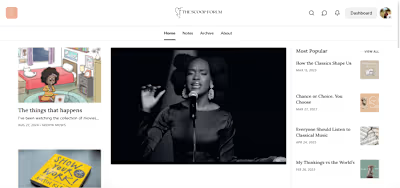Give Good Advice with "Solomon Paradox"

Have you ever been in a situation where someone asks your opinion on an issue and you give them your best advice? However, when it’s your turn to advise yourself, you make the wrong choices.
Psychologists refer to this as “Solomon’s paradox,” named after the wisest man who ever lived. The term caught my attention the other day whilst I was scrolling through my Chrome mobile feed.
King Solomon is a prolific character in the Bible, and one of the people who built the foundation of Ancient Israel and became the most prosperous nation at the time.
If you’ve read the Old Testament Book of Kings, there you will see how the crowned King asked God for wisdom to rule His people. God granted his request and bestowed upon him more gifts.
King Solomon went on to be the wisest man far and wide, with many stories of his wisdom in giving judgement and advice. However, as his story progresses, he starts getting influenced by the hundreds of pagan wives and concubines he entertained.
Although King Solomon is renowned for his wisdom and good kinship, his personal affairs were in shambles. His son Rehoboam took the throne unfit to rule, leading to the fall of his dynasty.
What is Solomon’s paradox?
According to University of Waterloo psychologist, Igor Grossman, Solomon’s paradox is a phenomenon where people are wise in analyzing and giving advice to others compared to giving the same advice to their own lives.
In other words, we are better at solving others’ problems than ours. That explains why we judge characters in TV shows and movies for actions we are guilty of, or we tell others to exercise and eat healthily, but we can’t even jog 100 meters. We talk double.
A common one I see often is when someone advises against tobacco smoking that it is bad for your health, yet that person is hooked on smoking.
However, this can be quite controversial as the person may be addicted to smoking but you understand the point I’m trying to make
Further studies on this highlight that everyone possesses two kinds of wisdom; general wisdom, and personal wisdom. General wisdom can be described as one possessed by everyone, the reasoning we assert when dealing with a third person or external situations.
Personal wisdom is the wisdom that concerns one’s life and personal affairs. A single person cannot necessarily have both types of wisdom as we tend to show more wisdom in others' affairs and remain stuck in ours.

King Solomon possessed general wisdom, the wisdom that helped him rule Israel, write most of the Book of Proverbs and be a wealthy king of his time. However, personal wisdom was not applied in his own life and personal affairs.
The difference between personal wisdom and general wisdom is that the latter can be misused to attack and criticize someone’s character and person rather than their actions and ideas. This is otherwise known in Logic as ad hominem.
Solomon’s paradox can be coined with the statement, “Do as I say, not as I do.”
Solomon’s paradox and Self Distance
With all the wise King Solomon acquired, why then couldn’t it guide him in his life choices? Psychologists propose that the distance at which we process a situation influences our decisions.
When you analyse a situation in a third-person distance, you tend to adopt the reasoning and unbiased judgement. Yet that is different when analysing the situation from the first-person perspective.
The reason is that we tend to use the first-person perspective when solving our problems than solving others' problems with a third-person perspective. In this case, self-distance is vital in the way our wisdom is applied in solving that situation.
Therefore, the lesson we can get from Solomon’s paradox is that to give good advice to ourselves, we need to take a step back, pause and think logically. Here are some ways that will help you:
Self-talk
This activity of self-monologue is trivial yet very important. The mind feeds off of what energy it is receiving from the outside.
Taking a few moments each day to have self-talk and chat with yourself helps a lot in making sense of things, analysing thoughts processes and making informed and well-thought decisions.
I converse with myself and it helps organise my thoughts and aid self-introspecting. So I advise you to give it a try.
Talk to Someone
If you find talking to yourself cringe. Then you can take the route to talking to someone - that is someone you are comfortable with and you can trust.
You learn a lot about yourself from someone who is on the outside, someone who knows your personality and can give you an unbiased report of yourself.
From this, you get a third-person view of who you are and from this, you can learn and identify yourself.
Journalling
Writing down your daily thoughts, and daily activity is another inexpensive yet important exercise in self-analysis. Not only is the activity of writing relaxing it is also a means of catharsis and self-reflection.
So, pick a time of day that works best for your schedule and mood, and write down or type the past happenings of your day or week. Reading what you've written over time gives you an insight into your head and thinking patterns.
From this, you can have a distant look into your head.
What type of wisdom do you have? Do you often catch yourself giving biased advice to others versus yourself?
Have a lovely week ahead.
Dee.
Like this project
Posted Apr 2, 2025
Have you ever been in a situation where someone asks your opinion on an issue and you give them your best advice? However, when it’s your turn to advise yourse…
Likes
0
Views
0




